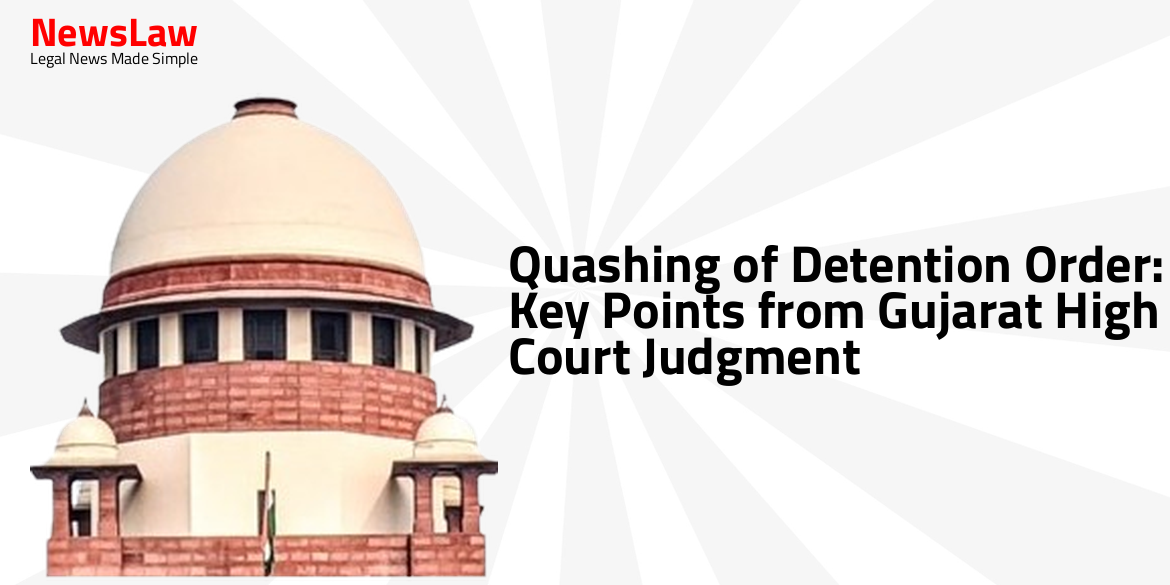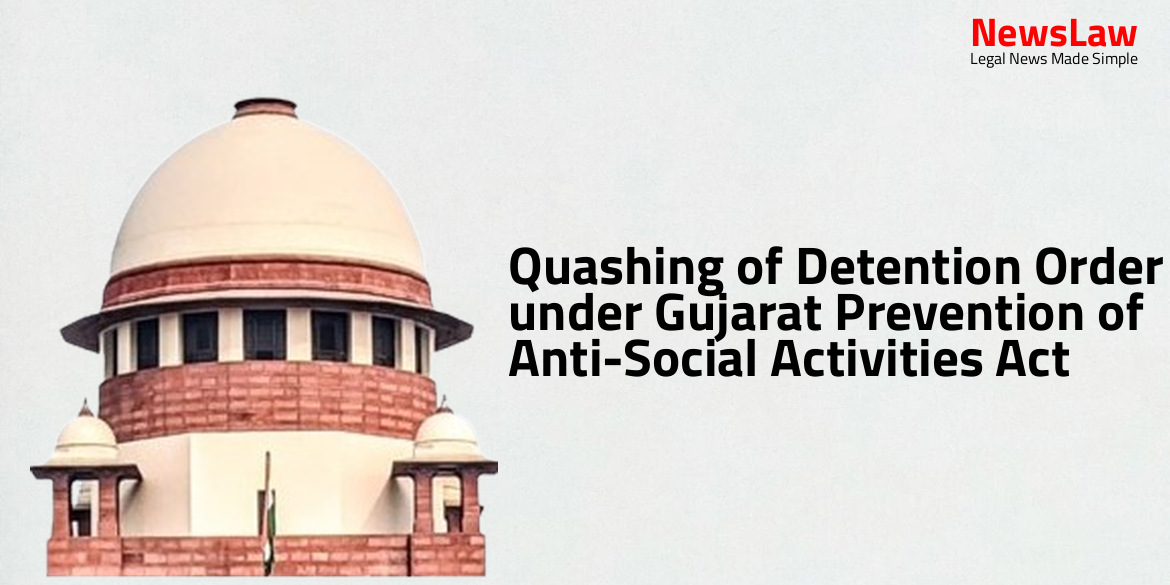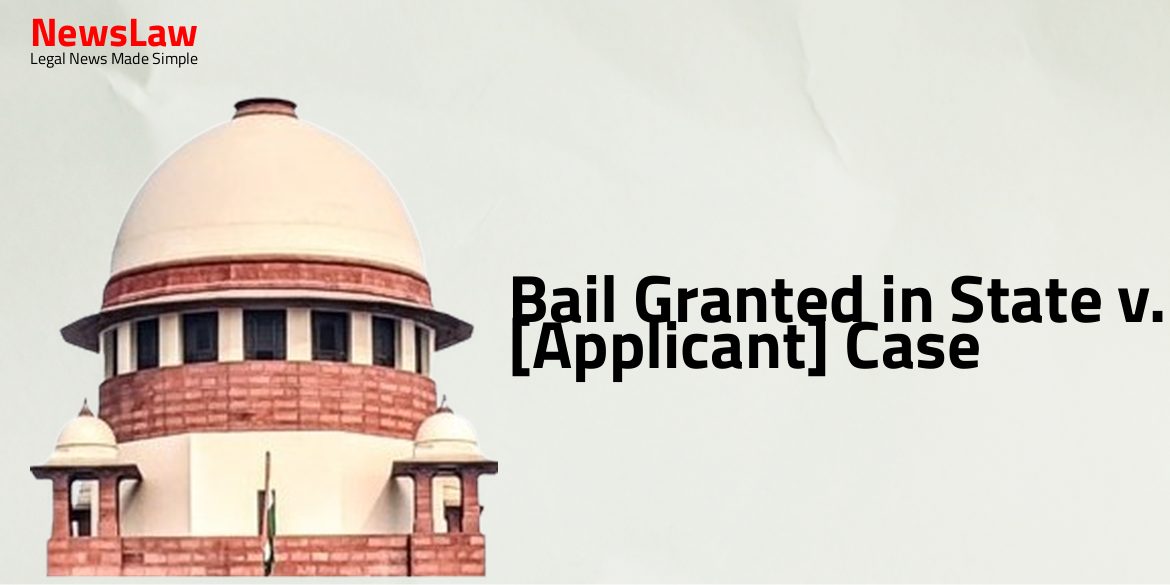In a significant development, the Gujarat High Court has overturned the detention order dated 23.12.2023 in the case involving the State authorities and the detenue. The judgment highlighted crucial aspects of preventive detention laws and underscored the importance of upholding individual rights enshrined in the Indian Constitution. Stay informed as we delve into the intricacies of the case and explore the implications of this ruling on future legal proceedings.
Arguments
- The learned advocate representing the petitioner – detenue argued that the detention order should be quashed.
- It was contended that the detaining authority based the order solely on the registration of two FIRs.
- The first FIR was for offenses under various sections of the Indian Penal Code and the Gujarat Police Act.
- The second FIR was for offenses under the Arms Act, 1959.
- The advocate argued that these grounds do not fit the definition of detention under Section 2(c) of the Act.
- The AGP for the State supported the detention order and stated that sufficient evidence was found during the investigation.
- The AGP argued that the detenue is habitually involved in activities defined under Section 2(c) of the Act.
- The detaining authority’s subjective satisfaction was found to be not legal or valid as the alleged offenses in the FIRs do not relate to public order.
- The advocate argued that the alleged activities of the detenue do not disturb the social fabric or pose a threat to the normal life of the people.
- It was emphasized that the detenue being released on bail in all offenses was not considered by the detaining authority.
- Overall, the arguments suggest that the detention order lacks legal merit and does not align with the requirements of the law.
Analysis
- Preventive detention is the detaining of a person without trial to prevent them from committing certain offenses, but it cannot replace ordinary law enforcement and investigation procedures.
- Preventive detention should not be used as a means to keep a person in perpetual custody without trial; it is typically limited to a year.
- District Magistrates can use preventive detention to prevent subversion of public order but not for maintaining law and order under normal circumstances.
- Orders of preventive detention must respect the rights enshrined in Articles 21 and 22 of the Indian Constitution.
- Preventive detention laws have strict safeguards to prevent abuse, tracing back to the colonial era.
- The criteria for invoking preventive detention include the individual being a threat to society, endangering public order to a significant extent.
- The detention order should be based on specific material demonstrating the individual’s threat to society.
- Detention should not be used as a substitute for legal punishment under specific laws, such as the Andhra Pradesh Prohibition Act.
- The judgment did not mention any application for canceling bail filed by the State authorities, suggesting a potential oversight in the detention process.
- The personal liberty of an accused cannot be sacrificed on the altar of preventive detention merely because a person is implicated in a criminal proceeding.
- The detention under preventive detention laws must be extremely necessary and must demonstrate a direct impact on public order to be justified.
- The distinction between ‘law and order’, ‘public order’ and ‘security of the State’ is crucial in determining the necessity of preventive detention.
- Preventive detention powers should be exercised with caution and only when there is evidence of activities directly impacting the interest and security of the State or disturbing public law and order.
- The power of preventive detention is exceptional and draconian, therefore, the detaining authorities must meticulously follow the procedures established by law.
Decision
- The petition is allowed as the registration of FIRs alone cannot be linked to the breach of public order
- No other relevant material exists for invoking power under Section 3(1) of the Act
- The order of detention dated 23.12.2023 is quashed and set aside
- The detenue is ordered to be released immediately if not required in any other case
- The rule is made absolute
Case Title: NIKUNJ S/O UMESHBHAI CHAUHAN Vs. STATE OF GUJARAT
Case Number: R/SCA/63/2024



